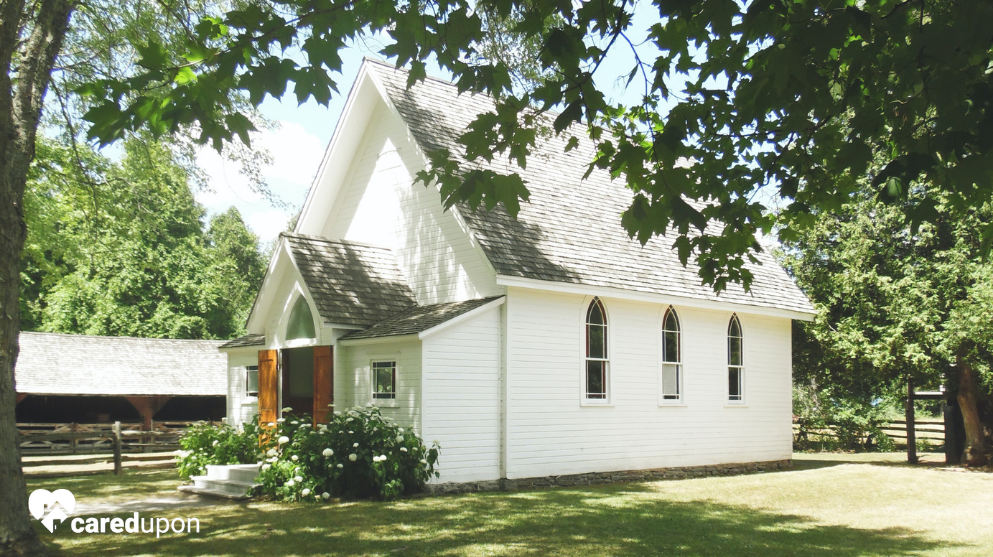A Guide to Retirement Care & Senior Living in Peterborough

Known for being the gateway to cottage country, Peterborough is both an attractive tourist and retirement destination for many filled with unique dining experiences, marinas, parks, and arts and heritage sites. There are many seasonal activities for retirees to enjoy in this vibrant city, and it is not only ideal for retirement because of its variety of senior activities, but also for its proximity to major city centres such as Toronto and Ottawa. If you are thinking about retiring down in Peterborough, Cared Upon can help guide you through your options for senior living communities in the city.
Lifestyle & Activities
From scenic marina walks to city centre strolls, Peterborough features several different attractions and outdoor spaces for retirees who enjoy staying active and exploring the city. One of the most popular attractions in the city includes the Peterborough Marina, a marina that offers tourists and residents access to restaurants, picnic tables, as well as annual events. The Peterborough Marina is also near their bustling downtown centre, offering access to various dining experiences, nightclubs, pubs, cafes. As a must-see attraction, the award-winning dining experience at Lock 21 brings many tourists into the city, offering a unique underwater dining experience as well as a historical tour into the world’s highest hydraulic lift lock.
Weather and Climate
Peterborough has a cold and temperate climate, and summers are comfortably warm, with freezing, windy, and snowy winters. You can expect the average summertime temperature in Peterborough to sit at around 24°C (75.2°F). Wintertime in the city is relatively cold, with an average low of -10°C (14°F).
Housing Options in Peterborough: Finding the Right Fit for You
You may find that as you age, your home care and retirement needs will change. From assisted living to adult lifestyle communities, Ontario offers seniors a range of housing options to fit their lifestyle and health needs. Although the location of your retirement community in Ontario will directly affect the cost, you can typically expect the cost of assisted living to start at $2000-$3000 per month.
Although a large portion of retirement housing is privately owned and paid for, the government allows you to claim the costs of nursing homes or long-term care facilities through the Medical Expense Tax Credit (METC). Depending on the type of care you require and the facility you choose to call home, you can choose to claim for the costs which will be determined by your personal income. To learn more about the Medical Expense Tax Credit, visit the GGFL website.
Cost of Retiring in Peterborough: Budgeting and Financing
In terms of retirement budgeting, you’ll find that the cost of retiring in Ontario will vary depending on the city you choose to settle down in. For example, as Toronto is one of the most vibrant and liveable cities in all of Canada, you may find that the cost of living is higher than the national average. However, seniors living on a low to moderately low income wishing to retire in Ontario may be eligible for various income support programs.
Ontario Trillium Benefit (OTB): The Ontario Trillium Benefit is a program that provides eligible seniors with payment from a combination of the Ontario Energy and Property Tax Credit, Northern Ontario Energy Credit, and the Ontario Sales Tax Credit.
Government Funding
Seniors residing in Ontario may also access several federally provided financial resources to help them prepare and pay for their retirement. If eligible, you may access funding through federal programs such as the Canadian Pension Plan Retirement Pension (CPP), Guaranteed Income Supplement (GIS), and the Old Age Security Pension (OAS). For more information on Government contributions and your eligibility, visit our care blog.
Post-Retirement Income Sources
For seniors not eligible or looking for government funding, there are several different ways they can look to fund their retirement.
Registered Retirement Savings Plans (RRSPs) and Tax-Free Savings Accounts (TFSAs): Using a Registered Retirement Savings Plans (RRSPs) or a Tax-Free Savings Account (TFSAs) you may save up for your post-retirement income, which will be dependent on the amount put into these accounts when you first began saving and the interest you received.
Investment accounts: Taxable investment accounts, such as stocks and bonds, is a more common form of saving up for a post-retirement income source.
Employer-sponsored pension plans: You may be eligible for an employer-sponsored pension plan through your employer. This plan involves your and your employer contributing money towards your retirement over the course of your employment.
To learn more about your post-retirement income source options, visit our resource centre.
Access to Healthcare
All residents of Ontario must sign up with the Ontario Health Insurance Plan (OHIP) to receive free health care and health services. As health care is publicly funded, under OHIP residents are entitled to coverage on health services such as visits to your doctor, hospital stays, medical surgeries, dental surgeries, ambulance services, eligible optometry services, and even travel for health-related services. While these are the standard services covered under OHIP, seniors 65 and up receive extended coverage on optometry services and prescription medication. You can find information on extended prescription medication coverage through the Ontario Drug Benefit program (ODB) on the Ontario Ministry of Health website.
Additional Resources
For further information, you can visit and/or contact these sources:
Ontario Senior Living Guide: A comprehensive guide to all things senior living and program-related in Ontario.
Telehealth Ontario: Call 1-866-797-0000 Toll-free to get access to a confidential health information line.



